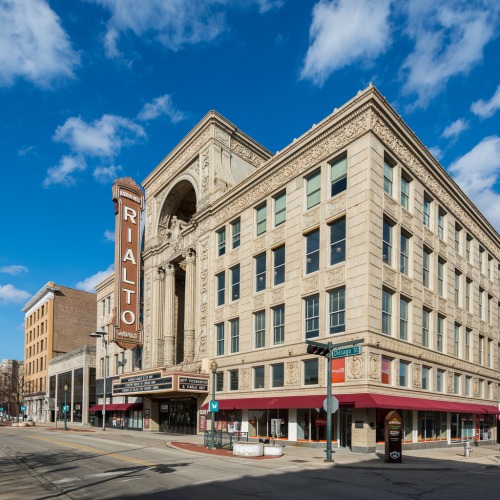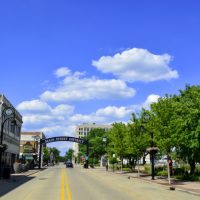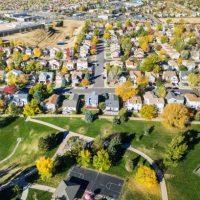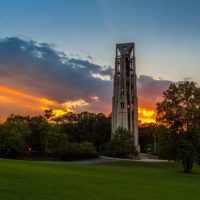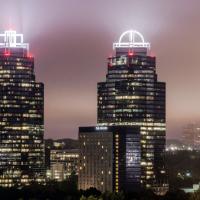Joliet, IL, is a medium-sized city located on the outskirts of Chicago in Will County.
Its population of around 150,000 people earns it the title of being the second-largest city in the county and the tenth-largest city in Illinois.
This suburban Chicago city has a rich history that dates back as far as the early 1800s.
Joliet is home to a number of historical landmarks, including the Rialto Square Theater and the Joliet Correctional Center Museum.
Residents of this famous Illinois city say that Joliet offers affordability in a family-friendly community within a reasonable driving distance of Chicago.
Below, we talk about some of the pros and cons of living in Joliet to help visitors and prospective residents make more informed decisions when choosing to live, work, or visit.
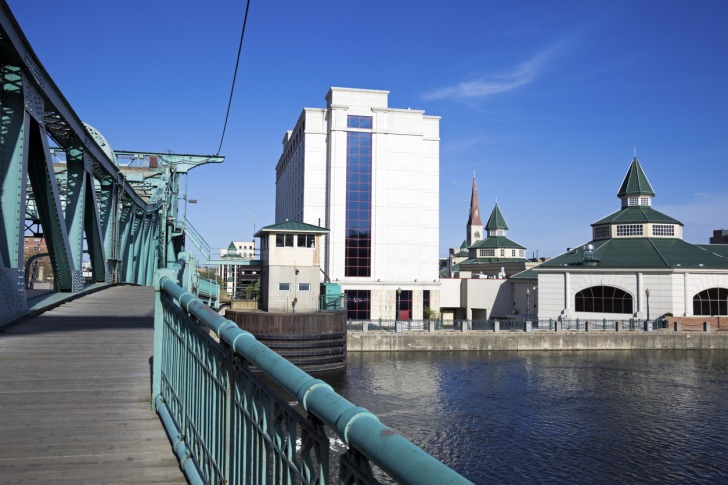
Contents
- Pros of Living in Joliet, IL
- Cons of Living in Joliet, IL
- 1. High Poverty Rate
- 2. Moderate-High Traffic Congestion
- 3. Poor Air Quality
- 4. Decaying Infrastructure
- 5. Incredibly High Rates of Violent and Property Crimes in Some Areas
- 6. Lack of Nearby Cultural Attractions and Entertainment
- 7. Limited Access to Public Transportation
- 8. City Residents Can Experience Cold, Wet Winters
- Pros and Cons of Living in Joliet, IL – Summary Table
- Joliet Safety Overview
- Frequently Asked Questions
Pros of Living in Joliet, IL
1. Affordable Cost of Living
Local residents and online cost of living reports show that the cost of living in Joliet is around 6 percent lower than the national average.
Affordable cost of living in the city means access to lower-cost housing and utilities.
Reports show that Joliet residents pay about 2 percent more than their Illinois and nationwide neighbors.
Transportation costs in the area are slightly higher than the local and national averages.
2. Strong Job Market and Economy
Joliet is home to a variety of manufacturing, healthcare, and retail businesses.
America’s BLS reports the unemployment rate in the city is lower than the national average.
Lower unemployment rates suggest that most Joliet residents are employed.
Top employers in Joliet that drive its robust market and local economy include the following:
- Amazon
- Walmart
- Target
- Mayo Clinic Health System
- John Deere
- Caterpillar
- Kraft Heinz
- 3M
3. Good Schools
Residents with school-aged children in elementary, middle, and high schools report being satisfied with the quality of education provided by Joliet School District 86.
The school district has a graduation rate slightly higher than the national average and has a good reputation for academic excellence.
The city has more than a few schools that consistently rank among the top schools in Illinois and the nation.
Top Rated Schools in Joliet:
- Joliet West High School
- Joliet Central High School
- Joliet Township High School District 204
4. Parks, Recreation, and Facilities
Newcomers to Joliet are often surprised by the variety of parks and recreation facilities in the city.
Individuals and families who love the outdoors can spend time at Pilcher Park, which has outdoor areas for biking, fishing, hiking, and picnicking.
This local park also has a small zoo, children’s playground, and golf course.
Other popular parks and recreation facilities in Joliet include:
- Splash Station
- Joliet Area Historical Musuem
- Joliet Slammers Stadium
5. Close to Chicago
Many people living in Joliet love living so close to one of the Midwest’s most booming cities.
Residents can easily commute between their west suburban homes, Downtown Chicago, and a host of Fortune 500 companies along the way.
They also enjoy having access to Chicago’s thriving cultural scene, which includes the Magnificent Mile, Lake Michigan, and a host of restaurants and entertainment venues that draw crowds from miles around.
6. Strong Sense of Community
Joliet’s residents appear to have a strong sense of community where residents band together to help each other.
The city is home to a number of volunteer organizations providing much-needed community services, including food pantries, homeless shelters, and after-school programs.
Joliet also puts on a number of festivals and events, like the Joliet Blues Festival and Oktoberfest, that boost community pride.
7. Friendly Residents and People
Many newcomers and visitors are surprised by the friendliness and outgoing qualities of Joliet residents.
City residents are known for being helpful and inclusive.
They welcome new residents and visitors with open arms and point them in the right direction to community services and other important landmarks to settle into the neighborhood.
Some local businesses even offer special discounts for newcomers in the area.
8. Easy Access to Interstates
Residents say living near the intersections of I-80 and I-55 is one of the perks of living in Joliet.
Homeowners who want to venture out of the city to run errands, work, educational pursuits, and leisure travel can quickly find themselves driving to nearby Midwestern towns, including Chicago, St. Louis, and Memphis, which are all within a few hours’ drive of Joliet.
Visitors and residents can access the entrance for I-80 east and west at West Jefferson Street and I-55 north and south.
Cons of Living in Joliet, IL
1. High Poverty Rate
Research results reported by the US Census Bureau say that about 10 percent of Joliet residents live below the poverty line.
The Census Bureau also says that the “Official Poverty Rate” for the entire nation has hovered around 11.5 percent since 2021.
Online reports say the city’s high rate of decline in manufacturing, where factories have closed, is one of the primary drivers of local poverty.
Other factors that affect the city’s poverty rate include high numbers of residents with low educational attainment levels, which freezes these residents out of higher-paying jobs.
2. Moderate-High Traffic Congestion
The city’s proximity to major metropolitan areas like Chicago and major thoroughfares, including Route 59, I-80, and I-55, make it a hub of traffic congestion that can last for hours depending on the time of day residents travel.
Many residents commute to work using these major roadways, known for causing miles-long snags that can last for hours.
City residents also report high traffic congestion on Jefferson Street and Plainfield Rd, which attracts a large number of commuters and shoppers that can tie up traffic for miles.
3. Poor Air Quality
The American Lung Association reports that Joliet’s network of manufacturing companies, coupled with emissions from cars and trucks, can lead to high levels of air pollution and poor air quality in some areas.
Their State of the Air Report for Will County, IL, shows that residents are frequently subjected to high ozone pollution and moderate levels of particle pollutants.
4. Decaying Infrastructure
Run-down buildings, crater-like potholes, crumbling roads, broken sidewalks, and uneven pavement are common occurrences around Joliet.
The city also has high numbers of faulty streetlights, sewage leaks, flooding, trash, and litter that can leave many residents contemplating moving to a new address.
5. Incredibly High Rates of Violent and Property Crimes in Some Areas
Online crime reports from Neighborhood Scout show that crime rates in Joliet are well above the national average.
They report a crime score of 29 out of 100 on a scale where 100 represents the safest cities in the country.
*Some areas of the city rank incredibly high in the areas of violent crimes and property crimes.
Crime statistics show the likelihood of becoming a victim of violent crime is about one person for every 198 people.
The state average is around 1 in 253 people.
This suburban Chicago city regularly reports high numbers of murders, rapes, robberies, and assaults.
6. Lack of Nearby Cultural Attractions and Entertainment
While the city of Joliet is home to affordable housing and a strong sense of community, there may not be as many local venues that provide the desired level of cultural attractions and entertainment that residents crave.
Young people living in Joliet often have to commute to other nearby suburbs and Chicago for fun and entertainment.
Families with children may have to drive to Downtown Chicago to access the city’s strong network of museums and art galleries that provide education and entertainment.
7. Limited Access to Public Transportation
Joliet’s residents who travel to work and school using public transportation use the local area Pace Bus system to get around.
The city’s local bus system offers limited options for residents, and some routes have shorter hours of operation, which can leave residents stranded or waiting hours for the next bus.
Buses can be uncomfortably crowded during rush hour, and there is limited service to many parts of the city.
8. City Residents Can Experience Cold, Wet Winters
Newcomers from states with warmer climates may be surprised to find out that Joliet’s winters can be cold and wet.
Wintertime temperatures in Joliet often hover under freezing and can even fall into single and negative digits during the peak of winter.
While spending time playing in newly fallen snow can be a delight for some residents, shoveling out cars, icing walkways and driveways, and an even longer commute can make Joliet winters feel miserable.
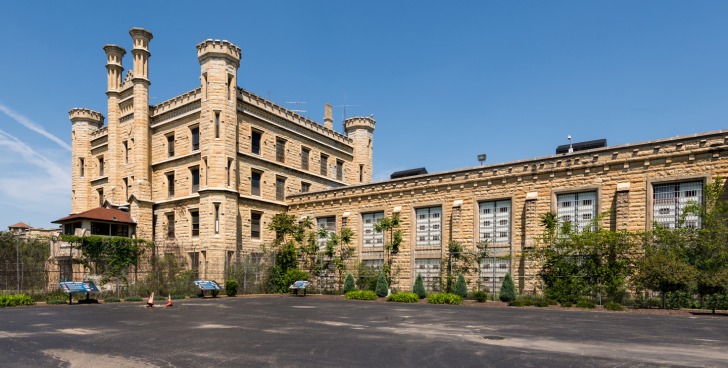
Pros and Cons of Living in Joliet, IL – Summary Table
| Pros of Living in Joliet, IL | Cons of Living in Joliet, IL |
|---|---|
| 1. Affordable Cost of Living | 1. High Poverty Rate |
| 2. Strong Job Market and Economy | 2. Moderate-High Traffic Congestion |
| 3. Good Schools | 3. Poor Air Quality |
| 4. Parks, Recreation, and Facilities | 4. Decaying Infrastructure |
| 5. Close to Chicago | 5. Incredibly High Rates of Violent and Property Crimes in Some Areas |
| 6. Strong Sense of Community | 6. Lack of Nearby Cultural Attractions and Entertainment |
| 7. Friendly Residents and People | 7. Limited Access to Public Transportation |
| 8. Easy Access to Interstates | 8. City Residents Can Experience Cold, Wet Winters |
Joliet Safety Overview
READ THE FULL REPORT: Joliet Safety Review
Safety Index:
- OVERALL RISK: LOW
- TRANSPORT & TAXIS RISK: LOW
- PICKPOCKETS RISK: LOW
- NATURAL DISASTERS RISK: LOW
- MUGGING RISK: LOW
- TERRORISM RISK: LOW
- SCAMS RISK: LOW
- WOMEN TRAVELERS RISK: LOW
Frequently Asked Questions
What are the schools like in Joliet, IL?
The school system in Joliet is rated as good or okay by most online reports.
Joliet does have a few schools known for their academic achievements.
The overall climate of the school system pales in comparison to other nearby top-notch school districts in Naperville and Plainfield.
How does the cost of living in Joliet compare to other nearby cities?
The cost of living in Joliet is lower than the costs of neighboring suburbs, including Naperville, Aurora, Bolingbrook, Elmhurst, and Lisle.
Area residents pay considerably less for housing than other west suburban cities within driving distance of Chicago and around 10 percent less than all other cities in the US for housing.
What are the main advantages of living in Joliet?
The main advantages for people living in Joliet and those considering moving there are the low housing costs, proximity to arts and entertainment venues in Chicago, and abundant job opportunities at local Fortune 500 and manufacturing companies.
What are the primary disadvantages of living in Joliet?
High crime rates, high incidents of drug use, air pollution, traffic congestion, and lack of local attractions are all disadvantages of living in Joliet.
Why is the crime rate so high in Joliet, IL?
One of the primary drivers of high crime rates in Joliet is its high poverty rates.
Other drivers of serious violent crimes and property crimes are high rates of drug use and gang activity in the city.
These factors, coupled with a lack of economic opportunities, drive crime rates that are higher than the state and national averages.
